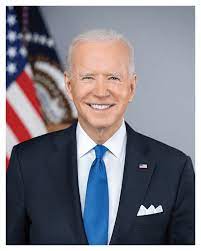- Center on Health Equity & Access
- Clinical
- Health Care Cost
- Health Care Delivery
- Insurance
- Policy
- Technology
- Value-Based Care
Biden Calls for Expanding Efforts to Control Drug Prices
In his State of the Union Address, the president called for expanding the number of drugs subject to Medicare price negotiations and extending a $2000 out-of-pocket cap beyond seniors.
Even before parts of the Inflation Reduction Act (IRA) aimed at controlling prescription drug prices have taken effect, President Joe Biden tonight called for expanding key pieces of the 2022 law during his State of the Union Address. His speech comes after Super Tuesday left Biden and former President Donald Trump as the de facto major party nominees for president.
The prescription drug proposals are unlikely to pass in an election year, but the point may be to highlight parts of the IRA that would come in a second Biden term, should the president be re-elected. He noted that no Republican voted for the legislation.
President Joe Biden | Image credit: White House photo

“Americans pay more for prescription drugs than anywhere in the world,” Biden said. “It's wrong.”
In particular, the president called for expanding portions of the IRA that cap consumer out-of-pocket costs for drugs and allow Medicare to negotiate drug prices; the second part, he said, is also needed to reduce the deficit.
“It's now time to go further and give Medicare the power to negotiate lower prices for 500 different drugs over the next decade,” Biden said. Pharmaceutical companies, he noted, “will still be extremely profitable.”
Prescription drug out-of-pocket caps. Although most of the drug proposals affect Medicare patients only, some would expand IRA provisions to all: Biden called for expanding the IRA’s annual $2000 cap on out-of-pocket spending in Medicare Part D, set to take effect in 2025. Biden wants this cap to apply to everyone with insurance through their jobs.
This provision is poised to be a game-changer for Medicare beneficiaries with high-cost conditions. In a June 2023 report, the advocacy group Patients for Affordable Drugs found that 95% of the patients with cancer it studied would benefit from this part of the IRA next year, realizing an average savings of $7590.
Already, some patients have seen significant relief due to the 2024 ramp up to the full out-of-pocket cap. Starting January 1, 2024, an annual cap took effect for brand name drugs; patients are no longer required to pay 5% of a drug’s cost once they reach a limit of $3300.
Similarly, Biden seeks to extend last year’s groundbreaking $35 per month cap on insulin costs—now offered only for Medicare beneficiaries—to all persons who obtain the hormone through a drug plan.
Expanding drug price negotiations. Biden called for more than doubling the size of the Medicare drug price negotiation program; right now, the IRA calls for including up to 20 drugs per year. Biden called for ramping the program up to 50 drugs per year and pulling drugs into the negotiation process sooner.
After years of talking about giving Medicare the ability to negotiate the cost of prescription drugs, Biden said, “finally we got it done…just as the VA is able to do for veterans.”
In August 2023, the administration named the first 10 drugs subject to negotiations; most are well-known therapies for diabetes or other cardiometabolic conditions. HHS announced on February 1, 2024, that it had sent its first offers to the affected pharmaceutical companies.
Biden’s plan comes the same day drugmakers for 4 pharmaceutical companies—Bristol Myers Squibb, Johnson & Johnson’s Janssen Pharmaceuticals, Novartis, and Novo Nordisk—laid out arguments against the IRA in a federal court hearing in New Jersey. On Monday, a federal judge in Delaware rejected AstraZeneca’s claim that the law is unconstitutional.
